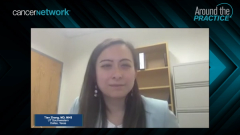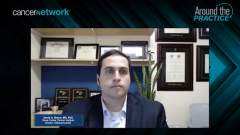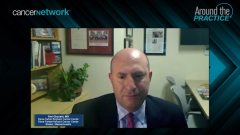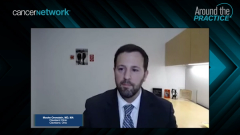
Patient Case 1: Discussion
The panel continues their conversation about the first patient case.
Episodes in this series

Toni Choueiri, MD: Let's get to the next slide please. So, this is another polling question here for our audience. How important are quality of life, these patients reported outcome measures in your treatment decisions? A, very important, B, somewhat important, C, neutral and D, not important?
Toni Choueiri, MD: The majority, three quarter of folks say they're very important or even somewhat important. Only a minority are neutral. So far, we don't have anyone that thinks these are not important. So far, we don't have anyone that thinks these are not important. Very good. I tend to agree but let's talk a bit about perhaps in the doublets the quality of life here or with single agent cabo. Dr. Zhang, the cabo/sun data did not have direct quality of life measures, but I believe they have done some Q-TWiST analysis comparing cabozantinib to sunitinib. Tell us a bit about this.
Tian Zhang, MD, MHS: I think from quality of life data we saw in the past year the Q-TWiST analysis and that favored cabozantinib for more quality adjusted survival time. All in all, better quality of life over the time that patients were on and living with good outcomes. And we also know, Dr. Choueiri, we saw patient reported outcomes through all the trials that we've been discussing so far as well. 9ER, KEYNOTE-426 and CLEAR and in general, I think in 9ER cabo/nivo also you presented improved quality of life compared against sunitinib. I know it's not a cohort basis. In KEYNOTE-426, I think there was some similar quality of life that was presented about a year ago. And then in CLEAR we saw some stable or better quality of life in the lenvatinib and pembrolizumab treated cohorts. And what I would just summarize for quality of life, I think we see improved quality of life when tumor control is better, when there's tumor related symptom control. And there are some caveats too. We're seeing different doses used in these trials, different questionnaires. Some of these analyses are retrospective when we don't actually have the patient reported questionnaires to go off of. And there's a cohort effect. So, I think these patient population effects and comparing quality of life across cohorts is not that one patient sitting in front of us in clinic. And if they do develop severe side effects from these treatments, we're often managing them and trying to improve day to day chronicity of side effects and their experience.
Toni Choueiri, MD: And I think that's excellent. One thing is that many of these studies did not have- All these studies of doublet, they weren't comparing the doublet to each other, it's against sunitinib. And despite sunitinib dose was the standard of the approved dose of 50 milligram once a day, four weeks on, two weeks off, there were some differences. CheckMate-9ER used a cabozantinib dose of 40 milligrams. Axitinib in KEYNOTE-56 Keynote-426, dose was five milligrams twice a day, the starting dose of the single agent. And it was clear that dose of lenvatinib was 20 milligram overall, so there's difference in those; and most important, there are difference in the quality of life metrics and questionnaires that were used making a bit, the comparison, unfair. But again, I agree with the two thirds of folks that mentioned they remain very, very important, especially when you don't have head-to-head comparison among these doublets
This transcript has been edited for clarity.
Newsletter
Stay up to date on recent advances in the multidisciplinary approach to cancer.









































